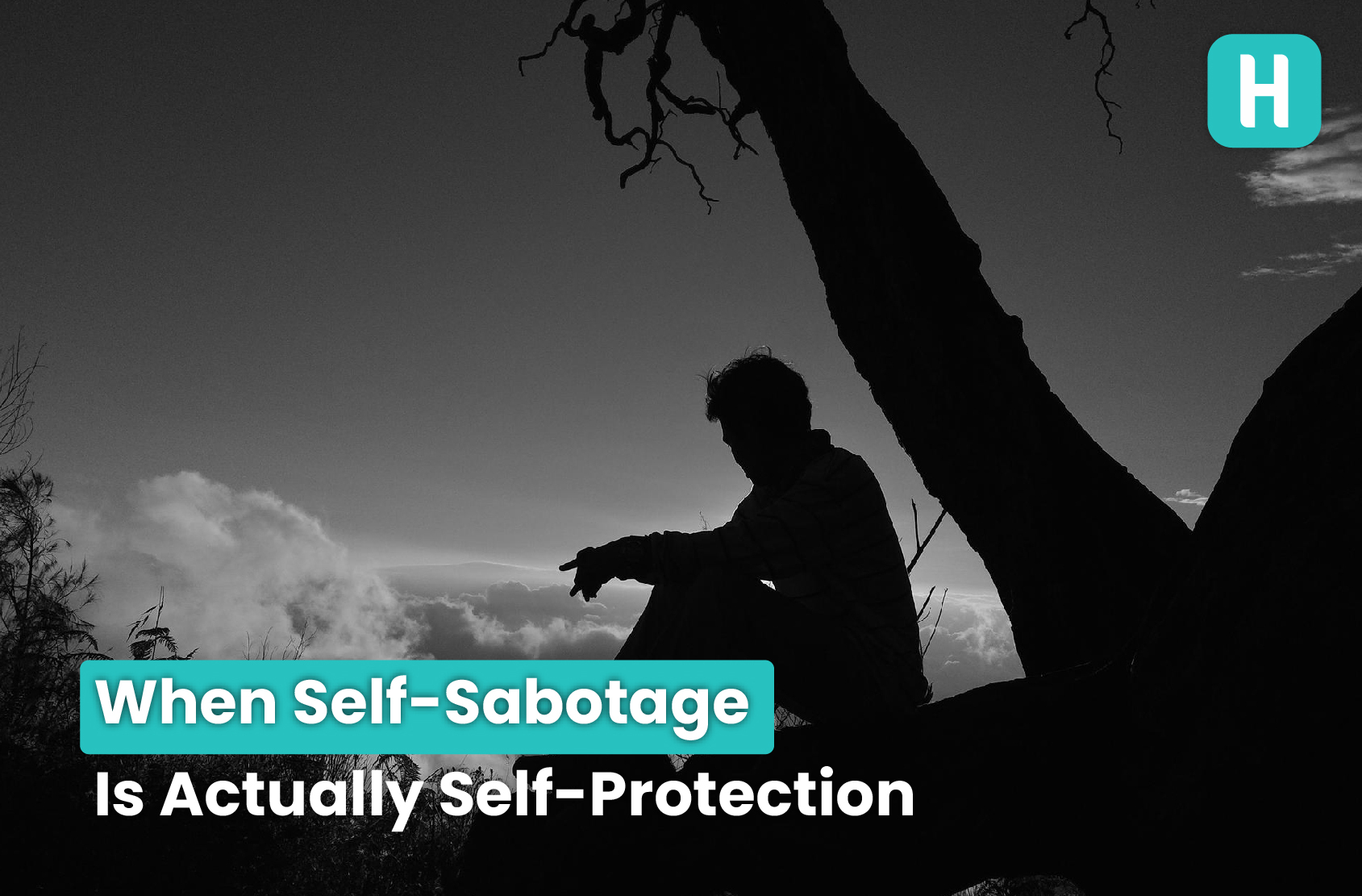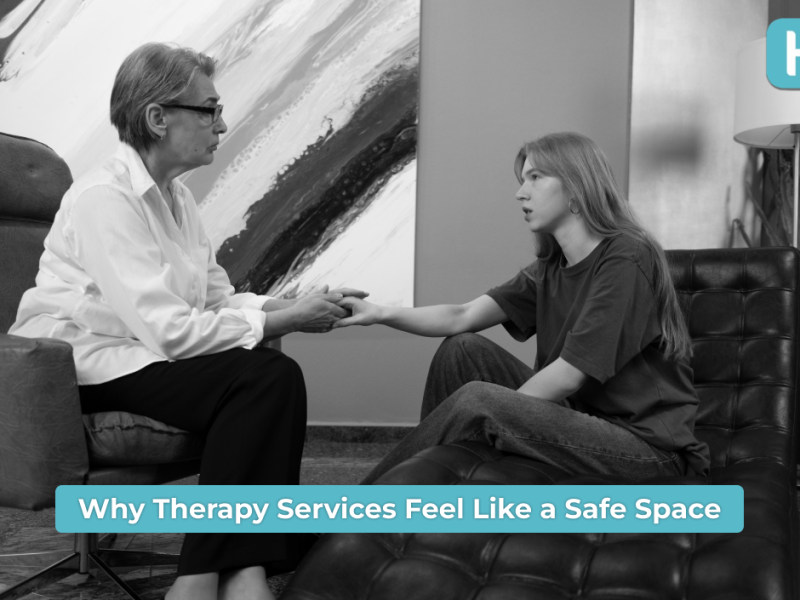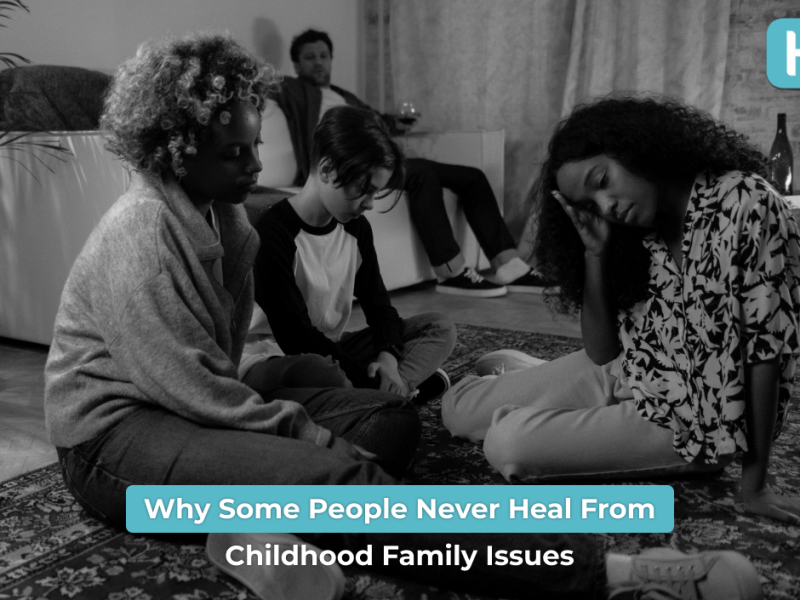When Self Sabotage Is Actually Self-Protection
Ever found yourself ruining something good — and you don’t even know why?
You ignore a text you were excited to receive.
You cancel on a meeting you really wanted to attend.
You tell yourself, “This will never work out anyway.”
It’s frustrating, right? But here’s something no one tells you:
You’re not broken. You’re protecting yourself.
That thing we call self-sabotage?
It’s not just you being lazy, scared, or not wanting it badly enough.
Sometimes, self-sabotage is your nervous system’s way of saying:
“We’ve been hurt before. Let’s not go there again.”
Why Smart, Capable People Sabotage Their Own Success?
Let’s talk about something hard.
You want to do well. You want to be loved. You want that promotion, that connection, that new chapter.
But when the moment comes, something inside freezes.
You back off. You mess up. You delay. You pretend you don’t care.
This is the silent, confusing loop of self-sabotage — and for many of us, it’s not about fear of failure.
It’s about fear of vulnerability.
Real Talk: Why Self-Sabotage Feels Like Self-Protection
You may have never said this out loud, but you’ve felt it:
- “If I succeed, people will expect more.”
- “If I let them in, they might leave.”
- “If I try and fail, it’ll confirm I’m not enough.”
So you do what feels safer: you pull away before anyone else can.
And just like that, self-sabotage becomes a soft landing — a preemptive move to avoid rejection, disappointment, or pain.
It’s twisted comfort, but it’s comfort all the same.
This is exactly why self-sabotage feels like self-protection. Because at one point in your life — it was.
Where This Pattern Usually Starts?
Picture this.
A kid shares their art proudly — and gets laughed at.
Or they open up about their feelings — and are told they’re too sensitive.
Or they succeed at something — only to be asked why they didn’t do better.
That kid learns: “It’s safer to stay small, quiet, unnoticed.”
Fast forward to adulthood, and now you avoid the very things you crave — love, success, visibility — because your brain still thinks they’ll cost you something.
This is self-sabotage as a trauma survival tactic.
Not drama. Not excuses. Just… survival.
Is My Self-Sabotage Protecting Me?
Let’s pause and ask something gentle:
What exactly is your self-sabotage trying to protect you from?
- Fear of being judged?
- Fear of being seen and not being enough?
- Fear of losing control?

You’re not ruining things because you’re bad at life. You’re trying to control the fall before it happens.
Because if you’re the one who ends it… at least you’re not blindsided.
It’s exhausting, right?
That’s what makes “Is my self-sabotage protecting me?” such an important question. Because most of the time — yeah, it is. But it’s also costing you joy, love, growth.
It’s Not That You Don’t Want Good Things… You Just Don’t Feel Safe Having Them
You don’t sabotage because you hate yourself.
You sabotage because safety matters more than satisfaction.
So when a situation feels too good to be true, your brain scans for danger and goes:
“Abort mission! It’s safer not to try than to be hurt again.”
It’s not stupidity. It’s emotional math.
But here’s the problem: This math was written during chaos. And it’s still running your life long after the danger is gone.
So How Do You Start Breaking the Pattern?
Here’s what no one says loud enough:
Healing doesn’t start with fixing the behavior.

It starts with understanding it.
Try this instead of beating yourself up:
- Catch the moment. When did you start pulling away? What triggered the shutdown?
- Name the fear. Was it fear of being seen? Of failing publicly? Of needing someone?
- Talk to your inner protector. “Hey, I know you’re scared. I know you’re trying to keep me safe. But we’re okay now.”
- Take one safe, small action. You don’t have to leap. You just have to show up differently once.
No shaming. No pushing. Just gentle awareness.
Because if you learned how to protect yourself with sabotage, you can also learn how to support yourself with love.
A Story You Might See Yourself In
Zara, a 29-year-old small business owner, kept ghosting leads after promising sales calls. She’d feel hopeful at first… then suddenly overwhelmed. “What if I say the wrong thing? What if they say yes and I can’t deliver?”
After therapy, she realized her fear wasn’t failure — it was being too much, too visible.
Growing up, she was taught that confident women were “too loud.” That wanting more made you selfish. So self-sabotage quietly kept her small. It felt like protection — until she learned to challenge it with kindness.
Now, she still gets nervous. But she doesn’t ghost anymore.
Because she’s building new safety around being seen.
You Deserve to Be Safe and Successful — At the Same Time
What would happen if your success didn’t have to cost your safety?
If love didn’t have to mean exposure?
If being vulnerable didn’t mean being weak?
That’s the work.
And if your heart’s whispering, “But I don’t know how to start…” — we know.
How Helply Can Support You?
At Helply, we don’t just treat behaviors. We honor the stories behind them.
We help people untangle the emotional knots behind:
- Repeating self-sabotage patterns
- Fear of being seen, heard, or loved
- Trauma responses hiding as “bad habits”
Our therapists walk with you — no judgment, just safety.
With online therapy that’s private, affordable, and trauma-informed, you can finally learn how to feel safe being your full self — not just your protected self.
Because healing isn’t about erasing your past.
It’s about choosing a new future.
And we’d love to help you get there.
👉 Book a free intro session at www.helply.ae
🙋♀️ FAQs
Q1: Is self-sabotage always linked to trauma?
Not always, but in many cases — especially recurring sabotage — it traces back to earlier emotional wounds, rejections, or survival instincts.
Q2: How do I know if I’m self-sabotaging?
Look for patterns: backing out of good things, overthinking yourself into paralysis, quitting before starting, or always expecting something to go wrong.
Q3: Can therapy really help?
Yes. Especially trauma-informed therapy. It helps you rewrite those old fear-based rules and build safety in the now, not just from the past.
Q4: I know I’m doing it, but I still can’t stop. Why?
Because the pattern is rooted in protection, not logic. You’re not stuck because you’re weak. You’re stuck because part of you thinks it’s unsafe to move forward. Therapy helps you rewire that.
Q5: How is Helply different from others?
We lead with empathy, not diagnosis. Our therapists understand trauma, identity, and nervous system regulation — so you get support that meets you where you are, not where someone thinks you “should” be.


